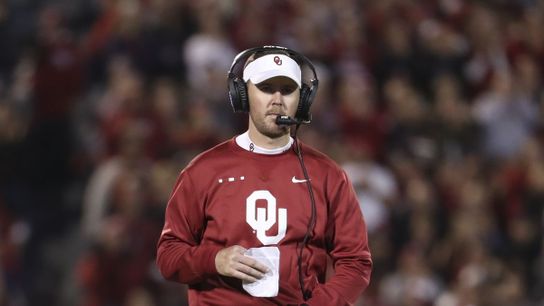Oklahoma's success under Lincoln Riley the past two seasons have been driven by some of the most explosive offenses in college football history.
Riley made a name for himself early on in his play calling career for putting up video game like numbers at ECU, and he's taken that to a whole new level with the talent at his disposal at Oklahoma as he's developed two straight Heisman winners at quarterback that have gone on to become the first overall picks in the last two NFL Drafts.
Riley and the Sooners have created an offensive identity that programs from the NFL to high school are trying to imitate and put their own spin on, but it's impossible to emulate one of the best play callers in football.
However, thanks to this clip from the Nike Coach of the Year Clinic, we've got some invaluable insight. Riley shares a bit about the thoughts that go into his game planning process, and shared a particularly interesting nugget on why 80% is an important number for him as he develops a game plan.
"I'm a big believer, that as you go back and you look at your game plan, I'm really big on is we go back and we create our game plan and we like it. We narrow down our plays. One thing I normally do about midweek is I look back and say, 'Alright, how many calls do we got on this thing where we have to call the right thing at the right time.'"
"Depending on how good, or how smart you think you are, or how smart you think your quarterback is, or how much you think you can be right, I think that number gets too high, and it gets tough. You're going to have those games when you call them all right, and you hit them at the right time and you catch them in the right coverages or the right blitzes, or this or that - and you're going to have those games when you don't. Where they adjust, or they do something different that you didn't see and all of a sudden, all the stuff you worked on and that you counted on isn't where you're standing at the end of the day."
"So we've tried to develop our game to have calls that you are confident calling, no matter what they're in. I know me, as a play caller, those calls for me in a game are a security blanket. I want to feel like 80%, at a minimum, of the calls on my call sheet, I'm good with calling no matter what the hell they're in."
"To me, anything over that, I put it back on their terms. If they change, if they do something different, if we call it at the wrong time, or this or that, so much has to go right for that one play to work."
See the full clip below.
